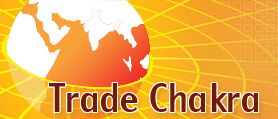Customs duty is a tax levied on imports by the customs authorities of a country to raise state revenue, and/or to protect domestic industries from more efficient competitors from abroad. In Malaysia, all goods dutiable on import are put through customs duty according to Customs Duties Order, 1996. The types of duties are import duty, sales tax, and export duty. The duty rates depend on the types of goods imported or exported. Royal Customs and Excise gives concession in the tariff rates for a range of goods along the lines of Malaysia’s dedication arising from the bilateral and multilateral trade negotiations with other Association of South East Asian Nations (ASEAN) members.
Many goods deriving from other ASEAN members are eligible for admission into Malaysia at special rate of duty. Importers who wish to claim the special rate of duty must submit at the time of lodging an import entry certificate of origin given by a suitable authority of the exporting country.
Goods imported for use as raw material in particular industries are exempt from customs duty. A tourist may bring in personal goods in reasonable quantities without paying duties subject to conditions. A Malaysian who has lived abroad or foreign nationals who have been permitted to reside in Malaysia are allowed to import used household belongings duty free, subject to conditions.
Raw materials used directly in the manufacture of approved products for export are exempt from customs duty, including packaging materials and casings. Trafficking of illegal drugs is a grave offence leading to death penalty. Items like 200 cigarettes, maximum 1 litre of wine, cosmetics, perfumes, soaps amounting to maximum value of Ringgit Malaysia (RM) 200, etc can be imported duty-free if the items are imported by the visitor on his person or baggage or residents of Malaysia who have left the nation for more than 120 hours. All goods from Israel and South Africa and any item having an imprint of any currency note or bank note issued currently or at any time in any nation are prohibited.
Free export of tobacco products and alcoholic beverages in reasonable quantities is allowed. Goods for export, whether dutiable or otherwise, must be displayed at the place of export or another place as decided by the Customs. Export goods can be declared by the owner, exporter, consignor or an agent allowed by the owner or exporter and approved by the Customs.




